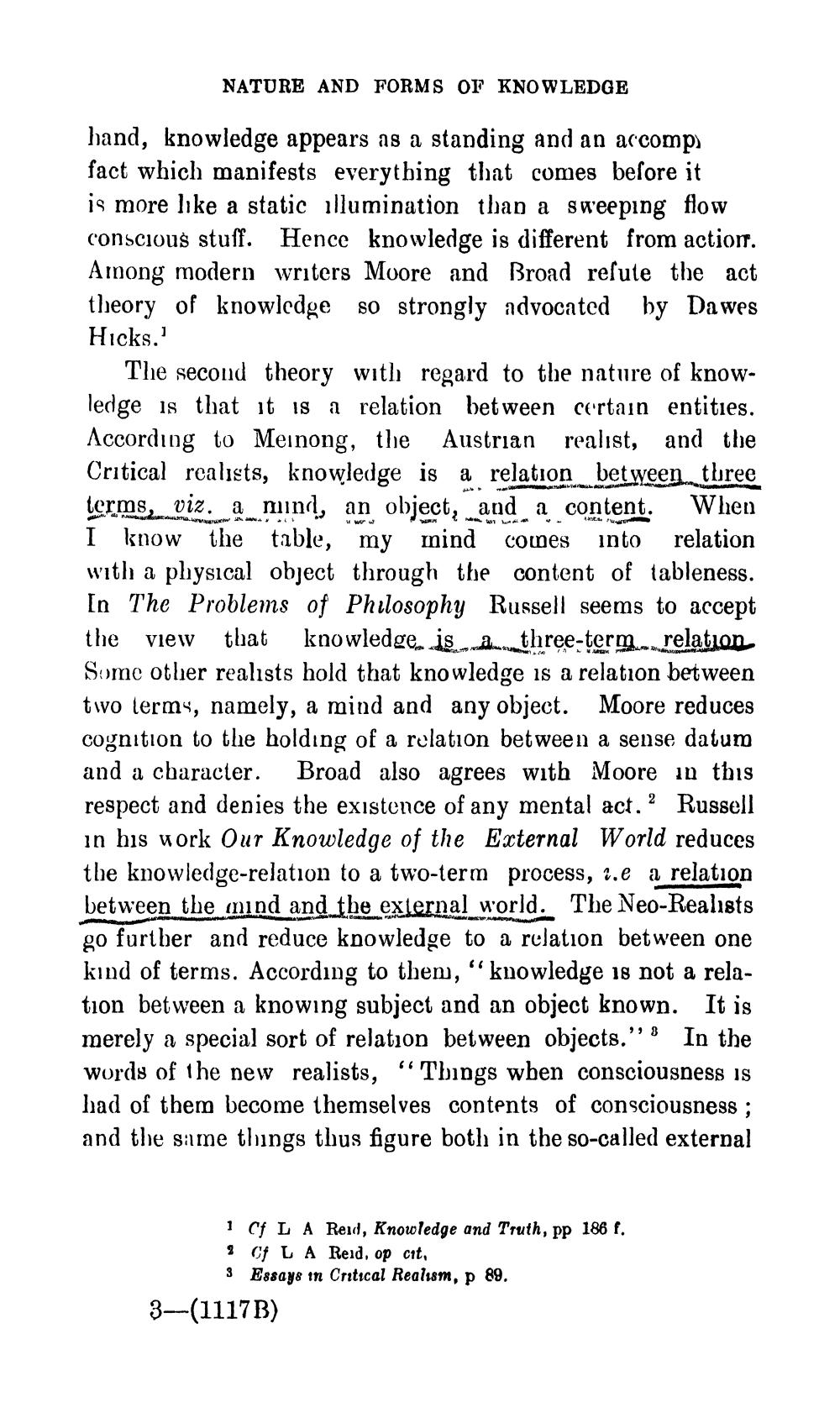________________
NATURE AND FORMS OF KNOWLEDGE
hand, knowledge appears as a standing and an accomp) fact which manifests everything that comes before it is more like a static illumination than a sweeping flow conscious stuff. Hence knowledge is different from action. Among modern writers Moore and Broad resute the act theory of knowledge so strongly advocated by Dawes Hicks.'
The second theory with regard to the nature of knowledge is that it is a relation between certain entities. According to Meinong, the Austrian realist, and the Critical realists, knowledge is a relation between three terms, viz. a nund, an object, and a content. When I know the table, my mind comes into relation with a physical object through the content of tableness. In The Problems of Philosophy Russell seems to accept the view that knowledge is a three-term..relation Some other realists hold that knowledge is a relation between two terms, namely, a mind and any object. Moore reduces cognition to the holding of a relation between a sense datum and a character. Broad also agrees with Moore in this respect and denies the existence of any mental act. ? Russell in his work Our Knowledge of the External World reduces the knowledge-relation to a two-term process, 2.e a relation between the mind and the external world. The Neo-Realists go further and reduce knowledge to a relation between one kind of terms. According to them, “knowledge is not a relation between a knowing subject and an object known. It is merely a special sort of relation between objects." $ In the words of the new realists, "Things wben consciousness is had of them become themselves contents of consciousness ; and the same things thus figure both in the so-called external
1 Cf L A Reid, Knowledge and Truth, pp 186 f. 9 Cf L A Reid, op cit,
3 Essays in Critical Realism, p 89. 3—(1117B)




